Home>Storage Ideas>Living Room Storage>21 Eco-Friendly Ideas For Cleaning With Lemons In Your Home
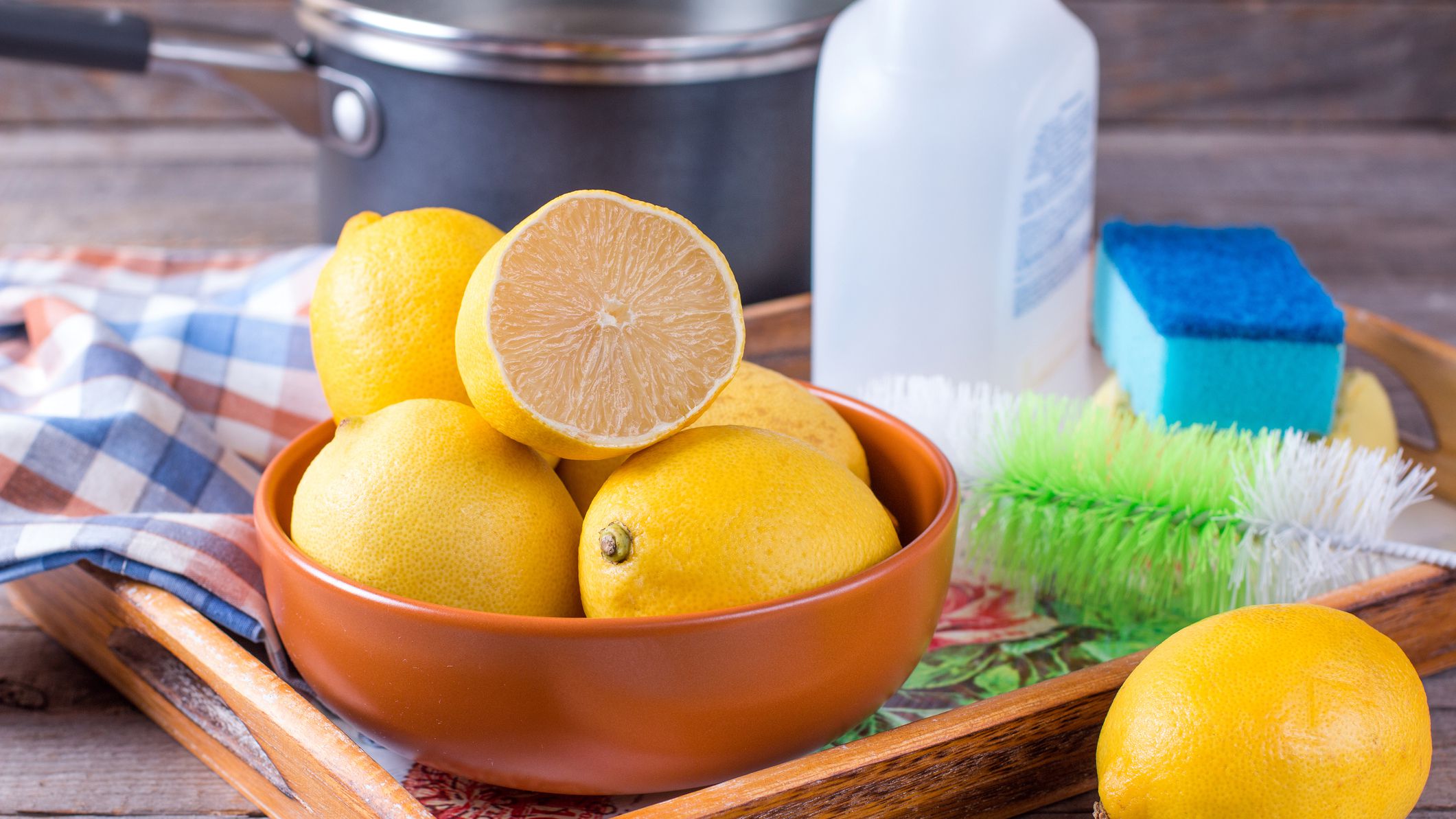

Living Room Storage
21 Eco-Friendly Ideas For Cleaning With Lemons In Your Home
Modified: October 20, 2024
Discover 21 eco-friendly ideas using lemons to clean your home, including effective techniques for living room storage.
(Many of the links in this article redirect to a specific reviewed product. Your purchase of these products through affiliate links helps to generate commission for Storables.com, at no extra cost. Learn more)
Introduction
Living in a clean and tidy home not only promotes a healthy environment but also contributes to our overall well-being. However, many cleaning products on the market today contain harsh chemicals that can be harmful to both our health and the environment. Fortunately, there are eco-friendly alternatives that can be just as effective, if not more so.
One such alternative is the use of lemons. Lemons are not only a versatile fruit that can add a burst of flavor to our meals, but they also possess natural cleaning properties that can be harnessed for a wide range of cleaning tasks. From freshening the air to removing stubborn stains, lemons can be our secret weapon for a sparkling clean home.
In this article, we will explore 21 eco-friendly ideas for cleaning with lemons in your home. These tips and tricks will not only help you maintain a clean and fresh living space but also reduce your reliance on harsh chemicals, making it a win-win for both you and the environment.
Before we dive into the various uses of lemons for cleaning, it’s important to note that lemon juice should be used with caution on delicate surfaces or materials that may be sensitive to acidity. Always test on a small, inconspicuous area before applying lemon-based cleaners to ensure compatibility.
Now, let’s unleash the power of lemons and discover how they can revolutionize your cleaning routine!
Key Takeaways:
- Harness the natural power of lemons to create eco-friendly cleaning solutions for your home, from all-purpose cleaners to pet stain removers. Embrace the refreshing scent and effective cleaning properties of lemons for a healthier living environment.
- Say goodbye to harsh chemicals and hello to the natural cleaning prowess of lemons. With 21 innovative ideas, transform your cleaning routine into an eco-friendly and invigorating experience, leaving your home naturally fresh and sparkling.
Lemon All-Purpose Cleaner
A lemon all-purpose cleaner is a fantastic alternative to store-bought chemical cleaners. It can be used to clean a variety of surfaces, including countertops, cabinets, and appliances. Plus, it has a fresh and uplifting scent that will leave your home smelling wonderful.
To make a lemon all-purpose cleaner, start by juicing several lemons until you have about half a cup of lemon juice. Pour the lemon juice into a spray bottle and add an equal amount of water. If you prefer a stronger cleaning solution, you can increase the ratio of lemon juice to water.
Next, add a few drops of dish soap to the mixture. The dish soap will help cut through grease and grime, leaving your surfaces spotless. Give the bottle a gentle shake to combine the ingredients.
To use the lemon all-purpose cleaner, simply spray it onto the desired surface and wipe it clean with a microfiber cloth or sponge. The natural acidity of the lemon juice helps to remove stains and disinfect surfaces, making it an ideal cleaner for everyday use.
Remember to avoid using the lemon all-purpose cleaner on delicate or porous surfaces, such as marble or granite, as the acidity of the lemon juice can damage these materials. Always test it on a small, inconspicuous area before using it on a larger scale.
With a homemade lemon all-purpose cleaner, you can achieve a clean and sanitized home without the use of harsh chemicals. Plus, the fresh citrus scent will leave your space smelling naturally fresh and inviting.
Stay tuned for the next eco-friendly cleaning idea using lemons!
Lemon Glass Cleaner
Glass surfaces, such as windows and mirrors, are prone to smudges, streaks, and fingerprints. Traditional glass cleaners may contain harsh chemicals that not only leave a residue but also contribute to indoor air pollution. Luckily, lemons can provide a natural and effective solution for cleaning glass surfaces.
To create a lemon glass cleaner, you’ll need the juice of one lemon, white vinegar, and water. Start by squeezing the juice of the lemon into a mixing bowl. Add equal parts of white vinegar and water to the bowl. If you prefer a stronger solution, you can increase the ratio of lemon juice or vinegar.
Mix the ingredients thoroughly, and then transfer the solution into a spray bottle for easy application. Spray the lemon glass cleaner onto the surface you wish to clean, and then wipe it down with a lint-free cloth or newspaper.
The acidity of the lemon juice combined with the cleaning properties of vinegar helps to dissolve smudges and streaks, leaving behind a sparkling clean glass surface. The natural fragrance of the lemons leaves a refreshing scent, unlike the chemical-laden alternatives.
When using the lemon glass cleaner, remember to avoid using it on tinted or coated glass surfaces as the acidity of the lemon juice can cause damage. Additionally, always shake the bottle well before each use to ensure the ingredients are well-mixed.
With this homemade lemon glass cleaner, you can achieve streak-free and crystal-clear glass surfaces without the need for harsh chemicals. Say goodbye to smudges and hello to sparkling windows and mirrors throughout your home!
Stay tuned for the next eco-friendly cleaning idea using lemons!
Lemon Disinfectant Spray
Keeping your home clean and free from germs is crucial, especially in areas that are frequently touched, such as doorknobs, light switches, and countertops. While commercial disinfectants can be effective, they often contain harsh chemicals that can be harmful to both your health and the environment. Luckily, lemons can be used to create a natural and effective lemon disinfectant spray.
To make a lemon disinfectant spray, you’ll need the juice of two lemons, distilled water, and a spray bottle. Start by squeezing the juice of the lemons into a mixing bowl. Add an equal amount of distilled water to the bowl. The acidity of the lemon juice will help kill germs and bacteria, while the distilled water ensures the spray is free from impurities.
You can also add a few drops of essential oil, such as tea tree oil or lavender oil, to the mixture. Essential oils not only add a pleasant fragrance but also possess natural antibacterial properties, enhancing the effectiveness of the disinfectant spray.
After mixing the ingredients, transfer the solution into a spray bottle. Shake the bottle well before each use to ensure the ingredients are properly mixed. To use the lemon disinfectant spray, simply spray it onto the surfaces you wish to disinfect, allowing it to sit for a few minutes before wiping it clean with a cloth or sponge.
The natural disinfecting properties of lemons combined with the antibacterial properties of essential oils create a powerful and eco-friendly solution for eliminating germs and bacteria. Plus, the fresh scent of lemons will leave your home smelling clean and refreshed.
Remember to always label your homemade cleaning products and store them in a cool, dark place to maintain their potency. Additionally, it’s important to note that this lemon disinfectant spray is suitable for non-porous surfaces only. Always test it on a small, inconspicuous area before using it on a larger surface.
With a homemade lemon disinfectant spray, you can confidently clean and disinfect your home, knowing you’re using a natural and effective solution that is safe for both your health and the environment.
Stay tuned for the next eco-friendly cleaning idea using lemons!
Lemon Degreaser
Grease and grime can build up on kitchen surfaces, stovetops, and even on kitchen utensils. While there are many degreasing products on the market, they often contain harsh chemicals that can be harmful to your health and the environment. Fortunately, lemons can be used to create a natural and effective lemon degreaser that cuts through grease and leaves surfaces clean and shiny.
To make a lemon degreaser, you’ll need the juice of two lemons, baking soda, and a sponge or cloth. Start by cutting the lemons in half and squeezing out the juice into a small bowl. Sprinkle baking soda onto the greasy surface, and then dip the sponge or cloth into the lemon juice.
Use the lemon-soaked sponge or cloth to scrub the greasy area, applying gentle pressure. The acidity of the lemon juice combined with the gentle abrasiveness of the baking soda works together to break down and lift away grease and grime.
After scrubbing, rinse the surface with water and wipe it dry with a clean cloth. You’ll be amazed at how effectively the lemon degreaser can cut through even the toughest grease, leaving behind a clean and sparkling surface.
Not only is the lemon degreaser effective, but it also leaves behind a fresh and citrusy scent. Plus, lemons are naturally antibacterial, so you can have peace of mind knowing that your kitchen surfaces are not only grease-free but also sanitized.
It’s important to note that the lemon degreaser may not be suitable for all surfaces, especially porous materials like marble or granite. Always test it on a small, inconspicuous area before using it on a larger surface.
With a homemade lemon degreaser, you can effectively tackle greasy messes in your kitchen without resorting to harsh chemicals. Clean and shiny surfaces are just a squeeze of lemon away!
Stay tuned for the next eco-friendly cleaning idea using lemons!
Read more: Green Living: Eco-Friendly Home Makeovers
Lemon Air Freshener
A fresh and pleasant-smelling home can significantly enhance the atmosphere and leave a positive impression on anyone who enters. While many commercial air fresheners contain artificial fragrances and harmful chemicals, lemons offer a natural and delightful solution for freshening the air in your home.
Making a lemon air freshener is incredibly simple. All you need are a few lemons and some water. Start by slicing the lemons into thin rounds. Fill a saucepan with water and add the lemon slices. Bring the water to a boil, and then reduce the heat and let it simmer for about 30 minutes. As the water boils, it will release the natural fragrance of the lemons, filling your home with a refreshing scent.
For an extra boost of fragrance, you can add other natural ingredients to the simmering water. Herbs such as rosemary or thyme can add a pleasant aroma, while cinnamon sticks or cloves can create a warm and cozy atmosphere. Experiment with different combinations to find your favorite scent.
If you prefer a more portable option, you can create a lemon air freshener spray. Simply squeeze the juice of a few lemons into a spray bottle and fill it up with water. Give it a good shake to mix the ingredients. You can also add a few drops of essential oil for an extra burst of fragrance.
To use the lemon air freshener spray, simply spritz it into the air or onto fabrics, such as curtains or cushions. The citrusy aroma will instantly freshen up any space and leave a pleasant scent that lingers.
With a homemade lemon air freshener, you can enjoy a naturally refreshing and invigorating ambiance in your home. Say goodbye to artificial scents and embrace the natural fragrance of lemons!
Stay tuned for the next eco-friendly cleaning idea using lemons!
Lemon Wood Polish
Wooden furniture and surfaces can lose their luster over time, resulting in a dull and worn appearance. Traditional wood polishes can contain harmful chemicals that not only pose a risk to your health but also harm the environment. Luckily, lemons offer a natural and effective solution for restoring the shine and beauty of your wood.
To make a lemon wood polish, you’ll need the juice of one lemon and olive oil. Start by squeezing the juice of the lemon into a small bowl. Add an equal amount of olive oil to the lemon juice and mix well. The acidity of the lemon juice helps to break down dirt and grime, while the olive oil nourishes and moisturizes the wood.
Dip a soft cloth or sponge into the lemon-oil mixture and use it to gently polish the wood, making sure to coat the entire surface. Allow the mixture to sit on the wood for a few minutes, allowing the natural cleaning properties of the lemon juice to work their magic.
After a few minutes, use a clean cloth to buff the wood, removing any excess polish and revealing a beautiful, shiny finish. The lemon wood polish not only removes dirt and grime but also helps to condition the wood, preventing it from drying out and cracking.
It’s important to note that the lemon wood polish should only be used on untreated or sealed wood surfaces. Avoid using it on waxed or varnished wood, as the lemon juice may cause damage or discoloration. Always test the polish on a small, inconspicuous area before applying it to the entire surface.
With a homemade lemon wood polish, you can rejuvenate and revitalize your wooden furniture, bringing back its natural beauty. Enjoy the rich and lustrous shine that only a natural lemon-based polish can provide.
Stay tuned for the next eco-friendly cleaning idea using lemons!
Lemon Stain Remover
Stains can be stubborn and unsightly, whether they’re on clothing, carpets, or other surfaces in your home. While there are many stain removers available on the market, they often contain harsh chemicals that can be harmful to your health and the environment. Thankfully, lemons offer a natural and effective solution for tackling those stubborn stains.
To create a lemon stain remover, you’ll need the juice of one lemon and some salt or baking soda. Start by squeezing the lemon juice into a small bowl. Sprinkle a generous amount of salt or baking soda onto the stain, and then squeeze the lemon juice onto the affected area. The acidity of the lemon juice combined with the abrasive texture of the salt or baking soda works together to break down and lift away the stain.
Using a clean cloth or sponge, gently scrub the stained area in a circular motion. Allow the lemon stain remover to sit on the stain for a few minutes to penetrate and loosen the stubborn marks. Rinse the area with water and blot it dry with a clean cloth.
For tougher stains, you can create a paste by mixing lemon juice with an equal amount of salt or baking soda. Apply the paste to the stain and let it sit for a few minutes before scrubbing and rinsing.
It’s important to note that the lemon stain remover may not be suitable for all types of stains, fabrics, or surfaces. Always test it on a small, inconspicuous area before applying it to a larger or more visible surface. Additionally, certain delicate materials like silk or wool may not react well to the acidity of the lemon juice, so exercise caution when using the lemon stain remover on these fabrics.
With a homemade lemon stain remover, you can tackle a wide range of stains without the worry of harsh chemicals. Say goodbye to stubborn marks and hello to clean and pristine surfaces!
Stay tuned for the next eco-friendly cleaning idea using lemons!
Lemon Carpet Freshener
Carpeting can trap odors and accumulate dirt and debris over time, leaving your home feeling less than fresh. While there are commercial carpet fresheners available, many of them contain artificial fragrances and chemicals that can be harmful to your health and the environment. Instead, you can turn to lemons to create a natural and effective carpet freshener.
To make a lemon carpet freshener, you’ll need the zest of a lemon and baking soda. Start by grating the lemon peel to collect the zest. Mix the lemon zest with baking soda in a bowl, ensuring they are evenly combined.
Next, sprinkle the lemon and baking soda mixture liberally over your carpet, focusing on areas that need a refresh. Use a broom or a gentle brush to work the mixture into the carpet fibers. Allow the mixture to sit for about 15-30 minutes to absorb odors and freshen the carpet.
After the allotted time, vacuum the carpet thoroughly to remove the lemon and baking soda mixture. As you vacuum, you’ll notice a fresh and inviting citrus scent filling the air. Not only does the lemon zest provide a natural fragrance, but the baking soda also helps to neutralize any lingering odors.
This lemon carpet freshener is safe for most types of carpets, but it’s always a good idea to test it in a small, inconspicuous area first to ensure compatibility. Additionally, avoid using this freshener on wet or damp carpets as it may lead to mildew growth.
With a homemade lemon carpet freshener, you can revive and invigorate your carpets, leaving them clean, fresh-smelling, and free from harsh chemicals. Say goodbye to stale odors and hello to a naturally refreshed home!
Stay tuned for the next eco-friendly cleaning idea using lemons!
Lemon Microwave Cleaner
The microwave can quickly become a breeding ground for food splatters, stains, and unpleasant odors. While there are cleaning products specifically designed for microwaves, they often contain harsh chemicals. Thankfully, lemons provide a natural and effective solution for cleaning and deodorizing your microwave.
To clean your microwave with lemons, you’ll need a microwave-safe bowl, water, and a lemon. Start by cutting the lemon in half and squeeze the juice into the bowl. Then, fill the bowl with water until it’s about halfway full.
Place the bowl with the lemon juice and water into the microwave and heat it on high for about three minutes. The steam created by the mixture will help loosen and soften the stubborn stains and food particles.
After three minutes, carefully remove the bowl from the microwave (it will be hot) and use a clean cloth or sponge to wipe away the softened dirt and grime. The acidity of the lemon juice helps to break down the food residue, making it easier to clean.
If there are any remaining stains or odors, you can create a simple paste by mixing equal parts lemon juice and baking soda. Apply the paste to the stubborn areas and let it sit for a few minutes before scrubbing and wiping clean.
Remember to clean the turntable and any removable parts of the microwave with warm soapy water. Rinse and dry thoroughly before placing them back inside the microwave.
With a little help from lemons, you can easily clean and deodorize your microwave without the use of harsh chemicals. Enjoy a fresh and clean microwave for all your cooking needs!
Stay tuned for the next eco-friendly cleaning idea using lemons!
Lemon Tile and Grout Cleaner
Over time, tiles and grout can accumulate dirt, grime, and stains, making them appear dull and dirty. Commercial tile and grout cleaners often contain harsh chemicals that can be harmful to your health and the environment. Luckily, lemons offer a natural and effective solution for cleaning and brightening your tiles and grout.
To create a lemon tile and grout cleaner, you’ll need the juice of several lemons, baking soda, and a small brush or toothbrush. Start by squeezing the lemon juice into a small bowl. Add enough baking soda to create a thick paste. The acidity of the lemon juice combined with the abrasive texture of the baking soda works together to break down stains and grime.
Dip the brush or toothbrush into the lemon and baking soda paste and apply it directly to the stained areas of your tiles and grout. Scrub gently in a circular motion to work the paste into the surface. Let the paste sit on the surfaces for a few minutes to allow the lemon juice to work its magic.
After a few minutes, rinse the area with water and wipe away the paste and residue with a damp cloth. You should notice a significant improvement in the cleanliness and brightness of your tiles and grout.
For tougher stains, you can apply the lemon juice directly to the stain, sprinkle baking soda on top, and scrub with the brush or toothbrush. Rinse and wipe clean after scrubbing.
Remember to test the lemon tile and grout cleaner on a small, inconspicuous area before applying it to a larger surface to ensure compatibility. Additionally, some natural stones, like marble, can be sensitive to acids, so it’s best to avoid using lemon-based cleaners on these types of surfaces.
With a homemade lemon tile and grout cleaner, you can restore the shine and cleanliness of your tiles while avoiding harsh chemicals. Enjoy a fresh and bright appearance in your kitchen or bathroom!
Stay tuned for the next eco-friendly cleaning idea using lemons!
Lemon Toilet Bowl Cleaner
A clean and fresh toilet bowl is essential for a hygienic and pleasant bathroom experience. However, many commercial toilet bowl cleaners contain harsh chemicals that can be harmful to your health and the environment. Thankfully, lemons offer a natural and effective solution for cleaning and deodorizing your toilet bowl.
To create a lemon toilet bowl cleaner, you’ll need the juice of two lemons, baking soda, and vinegar. Start by squeezing the lemon juice into a small bowl. Sprinkle a generous amount of baking soda into the toilet bowl, focusing on the areas with stains and mineral deposits.
Next, pour a cup of vinegar into the toilet bowl, allowing it to mix with the baking soda. The combination of vinegar and baking soda creates a foaming reaction that helps to break down stubborn stains and sanitize the bowl.
Add the lemon juice to the mixture in the toilet bowl, ensuring that it is distributed evenly. The acidity of the lemon juice further aids in removing stains and neutralizing odors.
With a toilet brush, scrub the inside of the bowl, making sure to cover all areas, including under the rim and around the water line. Let the mixture sit in the bowl for about 15-30 minutes to allow the lemon, baking soda, and vinegar to work their magic.
After the allotted time, scrub the bowl once more with the toilet brush, paying extra attention to any remaining stains or mineral deposits. Flush the toilet to rinse away the cleaner, and you’ll be left with a clean and fresh-smelling toilet bowl.
It’s important to note that the lemon toilet bowl cleaner may not be suitable for all types of toilets, especially those with delicate surfaces. Always check your toilet’s manufacturer guidelines before using any homemade cleaning solutions.
With a homemade lemon toilet bowl cleaner, you can effectively clean and deodorize your toilet without the use of harsh chemicals. Embrace a naturally fresh and sparkling clean bathroom!
Stay tuned for the next eco-friendly cleaning idea using lemons!
To freshen up your garbage disposal, cut a lemon into small pieces and run them through with cold water. The natural acidity will help eliminate odors.
Lemon Stainless Steel Cleaner
Stainless steel appliances and surfaces can easily become smudged and lose their shine over time. While there are many stainless steel cleaners available on the market, they often contain harsh chemicals and leave behind residue. Luckily, lemons provide a natural and effective solution for cleaning and restoring the brilliance of stainless steel.
To create a lemon stainless steel cleaner, you’ll need the juice of one lemon and some olive oil. Start by squeezing the lemon juice into a small bowl. Add a few tablespoons of olive oil to the lemon juice and mix well. The acid in the lemon juice helps to remove smudges and fingerprints, while the oil adds shine and repels water.
Dip a soft cloth or sponge into the lemon and olive oil mixture, and then gently rub it onto the stainless steel surface, working in the direction of the grain. Pay particular attention to any stained or dirty areas. The lemon juice helps to break down residue while the olive oil provides a protective barrier to prevent future smudges.
After applying the lemon and olive oil mixture, use a clean, dry cloth to buff the surface in circular motions. This will remove any excess liquid and bring out the natural shine of the stainless steel.
If you have stubborn stains or scratches on your stainless steel, you can create a paste by mixing lemon juice and baking soda. Apply the paste to the affected areas and gently rub it in with a soft cloth. Rinse with water and buff dry with a clean cloth.
It’s important to note that when cleaning stainless steel appliances, it’s best to avoid abrasive scrub brushes or steel wool as they can scratch the surface. Stick to soft cloths or sponges for gentle cleaning.
With a homemade lemon stainless steel cleaner, you can restore the shine and beauty of your stainless steel appliances without the use of harsh chemicals. Embrace the natural sparkle and elegance of your stainless steel surfaces!
Stay tuned for the next eco-friendly cleaning idea using lemons!
Lemon Upholstery Refresher
Upholstered furniture, such as sofas and chairs, can become dull and acquire unpleasant odors over time. While there are commercial upholstery cleaners available, they often contain harsh chemicals that can be harmful to your health and the environment. Thankfully, lemons offer a natural and effective solution for refreshing and deodorizing your upholstery.
To create a lemon upholstery refresher, you’ll need the juice of several lemons, water, and a spray bottle. Start by squeezing the lemons to extract the juice into a small bowl. Add an equal amount of water to the lemon juice and mix well.
Transfer the lemon and water mixture into a spray bottle. Test the solution on a small, inconspicuous area of your upholstery first to ensure it doesn’t cause any discoloration or damage.
Once you’re confident in the compatibility of the solution, proceed to spray a light mist evenly over your upholstery, focusing on areas that may have absorbed odors or appear stained. Allow the solution to sit on the upholstery for a few minutes.
After a few minutes, use a clean cloth or sponge to gently blot and rub the upholstery, absorbing any excess moisture and lifting away dirt and odors. Work in a circular motion to ensure even coverage.
If there are any stubborn stains or lingering odors, you can sprinkle baking soda onto your upholstery and let it sit for about 15 minutes before vacuuming it off. Baking soda helps to absorb odors and freshen the fabric.
It’s important to note that the lemon upholstery refresher may not be suitable for all types of upholstery fabrics. Always check the manufacturer’s guidelines or consult a professional before using any homemade cleaning solutions.
With a homemade lemon upholstery refresher, you can effectively freshen up your upholstery while avoiding the use of harsh chemicals. Embrace a naturally clean and revitalized living space!
Stay tuned for the next eco-friendly cleaning idea using lemons!
Lemon Jewelry Cleaner
Jewelry can lose its sparkle over time as dirt, oils, and tarnish accumulate on the surface. While there are many commercial jewelry cleaners available, they often contain harsh chemicals that can be damaging to certain types of jewelry. Fortunately, lemons provide a natural and effective solution for cleaning and restoring the shine of your precious accessories.
To create a lemon jewelry cleaner, you’ll need the juice of one lemon and some warm water. Start by squeezing the lemon juice into a small bowl. Add enough warm water to the lemon juice to submerge your jewelry pieces.
Place your jewelry into the lemon water mixture and let it soak for about 10 minutes. The natural acidity of the lemon juice helps to dissolve dirt and oils, while the gentle agitation created by the water aids in loosening any debris.
After soaking, gently scrub your jewelry with a soft toothbrush or a cotton swab to remove any remaining dirt or tarnish. Pay extra attention to intricate areas or settings where dirt may be trapped.
Rinse your jewelry under running water to remove any residue and dry it with a soft, lint-free cloth. You’ll be amazed at how the natural cleansing properties of lemons restore the shimmer and brilliance of your jewelry.
It’s important to note that while lemon juice is safe for many types of jewelry, it may not be suitable for all. Avoid using lemon juice on delicate gemstones, such as pearls, opals, or emeralds, as they can be easily damaged or discolored. Consult a professional jeweler for specific cleaning instructions if you’re unsure about the compatibility of your jewelry with lemon juice.
With a homemade lemon jewelry cleaner, you can bring back the beauty and radiance of your favorite pieces without the use of harsh chemicals. Enjoy wearing your jewelry with confidence and elegance!
Stay tuned for the next eco-friendly cleaning idea using lemons!
Lemon Drain Cleaner
Clogged drains can be a frustrating issue to deal with. While there are many commercial drain cleaners available, they often contain strong chemicals that can be harmful to both your health and the environment. Fortunately, lemons offer a natural and effective solution for unclogging and freshening your drains.
To create a lemon drain cleaner, you’ll need the juice of several lemons and baking soda. Start by pouring a pot of boiling water down your drain to help break up any greasy build-up.
Next, sprinkle about half a cup of baking soda down the drain, ensuring it makes its way into the pipe. Baking soda is a natural abrasive that helps to break down residue and eliminate unpleasant odors.
Squeeze the lemon juice into a small bowl, and slowly pour it down the drain, allowing it to react with the baking soda. The combination of the lemon juice and baking soda creates a foaming reaction that helps to break up clogs and clear the drain.
Let the mixture sit in the drain for about 10 minutes, allowing it to work its magic. Then, flush the drain with hot water to wash away the solution and any loosened debris. Repeat the process if necessary.
For preventive maintenance, you can regularly pour a mixture of lemon juice and hot water down your drain to keep it fresh and free from debris.
It’s important to note that while the lemon drain cleaner is effective for most common clogs, it may not be suitable for severe or stubborn blockages. In such cases, it’s best to consult a professional plumber to avoid causing further damage.
With a homemade lemon drain cleaner, you can effectively unclog and freshen your drains without the use of harsh chemicals. Embrace a clean and clear drain system the natural way!
Stay tuned for the next eco-friendly cleaning idea using lemons!
Lemon Oven Cleaner
Oven cleaning is a task that most people dread, as it often involves strong and harsh chemical cleaners. However, lemons offer a natural and effective solution for cleaning your oven, without the need for harsh chemicals.
To create a homemade lemon oven cleaner, you’ll need the juice of two lemons, baking soda, and water. Start by preheating your oven to a low temperature, around 100 degrees Celsius (212°F).
In a small bowl, mix equal parts baking soda and water to create a thick paste. The baking soda acts as a mild abrasive that helps to remove grease and grime.
Squeeze the lemon juice into the paste mixture, a little at a time, until it forms a smooth consistency. The citric acid in the lemon juice helps to break down stubborn stains and eliminate unpleasant odors.
Spread the lemon and baking soda paste evenly over the interior surfaces of your oven, focusing on areas with heavy grease and build-up. Avoid applying the mixture to the heating elements or any electrical parts.
Leave the paste on for at least 30 minutes, or overnight for more stubborn stains. The combination of the lemon juice and baking soda will loosen and dissolve the grease and grime, making it easier to wipe away.
After the designated time, use a damp cloth or sponge to wipe away the paste, gently scrubbing to remove any remaining residue. Rinse the cloth or sponge regularly and continue until all the paste and grime are removed.
Finish by wiping down the interior surfaces with clean water to remove any traces of the lemon and baking soda mixture. Lastly, dry the surfaces with a clean towel or allow them to air dry.
With a homemade lemon oven cleaner, you can effectively remove grease and grime from your oven without the use of harsh chemicals. Embrace a clean and fresh-smelling oven, the natural way!
Stay tuned for the next eco-friendly cleaning idea using lemons!
Lemon Refrigerator Cleaner
Keeping your refrigerator clean and fresh is essential for maintaining food safety and preventing unpleasant odors. While there are commercial refrigerator cleaners available, they often contain strong chemicals and leave behind residue. Fortunately, lemons provide a natural and effective solution for cleaning and deodorizing your refrigerator.
To create a lemon refrigerator cleaner, you’ll need the juice of one or two lemons, baking soda, and water. Start by squeezing the lemon juice into a small bowl. Add about two tablespoons of baking soda and enough water to create a paste with a spreadable consistency.
Dip a clean cloth or sponge into the lemon and baking soda paste, and use it to wipe down the interior surfaces of your refrigerator. Pay attention to shelves, drawers, and door compartments, where spills and stains are most likely to occur.
Gently scrub any stubborn stains or sticky residue with the paste, working in circular motions. The natural acidity of the lemon juice helps to break down grime and odors, while the baking soda acts as a gentle abrasive to lift away dirt.
Rinse the cloth or sponge with water and continue wiping down the surfaces to remove any remaining paste and residue. For stubborn stains, you can use a cloth soaked in lemon juice or sprinkle baking soda directly on the stain and scrub gently.
After cleaning, dry the surfaces with a clean towel or allow them to air dry. You’ll be left with a fresh and clean refrigerator, free from chemical residues and lingering odors.
For ongoing maintenance, you can place half a lemon or a small bowl of lemon juice in your refrigerator to absorb any odors and keep it smelling fresh. Replace the lemon or refresh the lemon juice every few weeks.
With a homemade lemon refrigerator cleaner, you can achieve a clean and fresh storage space for your food without the use of harsh chemicals. Embrace a naturally clean and inviting refrigerator!
Stay tuned for the next eco-friendly cleaning idea using lemons!
Lemon Garbage Disposal Freshener
The garbage disposal is a convenient and essential kitchen appliance, but it can also be susceptible to unpleasant odors caused by food residue and bacteria buildup. While there are commercial garbage disposal fresheners available, they often contain artificial fragrances and chemicals. Thankfully, lemons provide a natural and effective solution for freshening and deodorizing your garbage disposal.
To create a lemon garbage disposal freshener, you’ll need the peels of a few lemons and some ice cubes. Start by cutting the lemons in half and juicing them. Set aside the juice for another use.
Next, cut the lemon peels into small pieces that can fit into the garbage disposal opening. The natural oils in the lemon peels will help release a fresh and citrusy scent.
Place the lemon peel pieces into an ice cube tray, filling each compartment with a few pieces. Then, fill the tray with water and freeze it until the ice cubes are solid.
When your garbage disposal needs a refresh, drop a couple of the lemon peel ice cubes into the disposal unit. Turn on the disposal and run cold water. The ice will help to break up any residue while the lemon peels release their natural oils, leaving behind a fresh scent.
For an extra boost of freshness, you can add a tablespoon of baking soda down the disposal before dropping in the lemon peel ice cubes. The combination of baking soda and lemon will help to eliminate any lingering odors.
Continue running the disposal and water for a minute or two to ensure that the lemon peels and ice cubes are fully processed and flushed away.
With a homemade lemon garbage disposal freshener, you can effectively combat odors and keep your kitchen smelling naturally fresh. Embrace a pleasant and inviting environment every time you use your garbage disposal.
Stay tuned for the next eco-friendly cleaning idea using lemons!
Lemon Showerhead Cleaner
A clogged or dirty showerhead can result in weak water flow and uneven spray, diminishing the overall showering experience. Commercial showerhead cleaners often contain harsh chemicals that can be harmful to your health and the environment. Luckily, lemons provide a natural and effective solution for cleaning and revitalizing your showerhead.
To create a lemon showerhead cleaner, you’ll need the juice of one or two lemons and a plastic bag or a container large enough to fit your showerhead. Start by squeezing the lemon juice into a small bowl.
If you are using a plastic bag, fill it with enough lemon juice to submerge the showerhead. Place the plastic bag over the showerhead, making sure the nozzles are fully immersed in the lemon juice. Secure the bag in place using a rubber band or a zip tie.
If you are using a container, pour the lemon juice into it and place the showerhead, nozzle-side down, into the container. Make sure the showerhead is fully submerged in the lemon juice.
Let the showerhead soak in the lemon juice for about 30 minutes to an hour. The natural acidity of the lemon juice will help to dissolve mineral deposits and remove any clogs or blockages.
After the soaking time, remove the plastic bag or lift the showerhead out of the container. Wipe away any loosened debris or mineral deposits with a soft cloth or a toothbrush. Pay special attention to the nozzles and other small crevices.
Rinse the showerhead thoroughly with water to remove any remaining lemon juice and residue. Make sure all the nozzles are clear and flowing freely.
With a clean and refreshed showerhead, you’ll enjoy improved water flow and a rejuvenated showering experience. Plus, the natural fragrance of lemons will leave your bathroom smelling fresh and invigorating.
Remember to check your showerhead manufacturer’s guidelines before using any homemade cleaning solutions, as certain materials or finishes may require specific care.
With a homemade lemon showerhead cleaner, you can effectively cleanse and restore your showerhead without the use of harsh chemicals. Embrace a revitalized and enjoyable showering experience!
Stay tuned for the next eco-friendly cleaning idea using lemons!
Lemon Pet Stain Remover
Accidents happen, especially when you have pets. Pet stains can be a challenge to remove, but lemons provide a natural and effective solution for tackling those unsightly and smelly messes without the use of harsh chemicals.
To create a lemon pet stain remover, you’ll need the juice of several lemons and water. Start by blotting up any excess liquid or solid waste from the stain using a clean cloth or paper towel.
Mix equal parts lemon juice and water in a bowl or spray bottle. Lemon juice contains natural enzymes that help break down organic stains and neutralize odors.
If the stain is on a hard surface, such as tile or laminate flooring, soak a cloth or sponge in the lemon juice mixture and dab it onto the stain. Gently scrub the area in circular motions, being careful not to spread the stain further.
If the stain is on carpet or upholstery, spray the lemon juice mixture onto the stained area, saturating it thoroughly. Allow the mixture to sit for about 10 minutes to penetrate the stain.
Using a clean cloth, blot the stained area, applying gentle pressure to absorb the liquid and lift away the stain. Repeat the process until the stain is no longer visible.
After removing the stain, rinse the area with clean water and blot it dry with a clean cloth or paper towel.
It’s important to note that lemon juice can bleach certain fabrics and surfaces, so always test the mixture on a small, inconspicuous area first to ensure it doesn’t cause any discoloration.
With a homemade lemon pet stain remover, you can effectively clean up after your furry friends while avoiding the use of harsh chemicals. Embrace a clean and fresh-smelling environment for both you and your pets!
Stay tuned for the next eco-friendly cleaning idea using lemons!
Read more: How To Clean A Kettle With Lemon
Lemon Laundry Booster
When it comes to doing laundry, dealing with tough stains and odors can be a challenge. While there are many laundry boosters available, they often contain artificial fragrances and chemicals. Fortunately, lemons provide a natural and effective solution for boosting the cleaning power of your laundry while giving it a fresh and invigorating scent.
To create a lemon laundry booster, you’ll need the juice of one or two lemons and baking soda. Start by squeezing the lemon juice into a small bowl.
In a separate container, mix about half a cup of baking soda with enough water to create a paste-like consistency. Baking soda acts as a natural deodorizer and helps to lift stains from fabric.
Combine the lemon juice with the baking soda paste and stir well until thoroughly mixed.
To use the lemon laundry booster, add it to your regular laundry detergent when washing your clothes. You can either add it directly to the detergent compartment in your washing machine or mix it with a small amount of water to create a pre-wash treatment for specific stains.
If you have particularly stubborn stains, apply the lemon and baking soda mixture directly onto the affected area. Let it sit for about 15 minutes before washing as usual.
After washing, your laundry will not only be clean but also have a fresh lemony scent. The natural acidity of the lemons helps to break down stains and neutralize odors, giving your clothes a rejuvenated feel.
It’s important to note that while lemon is generally safe for most fabrics and colors, it’s best to test the lemon laundry booster on a small, inconspicuous area before using it on a larger scale.
With a homemade lemon laundry booster, you can effectively enhance the cleaning power of your laundry while enjoying the natural freshness of lemons. Say goodbye to stubborn stains and hello to a revitalized laundry routine!
Congratulations on completing the list of 21 eco-friendly ideas for cleaning with lemons!
Conclusion
In conclusion, lemons are not only a versatile fruit that offers a burst of flavor to our meals but also provide natural and eco-friendly solutions for a wide range of cleaning tasks in our homes. Throughout this article, we have explored 21 innovative and effective ways to harness the power of lemons for cleaning purposes.
From creating all-purpose cleaners and glass cleaners to disinfectant sprays and degreasers, lemons have proven to be a valuable tool in maintaining a clean and healthy living environment. Their natural acidity, antibacterial properties, and refreshing fragrance make them an excellent alternative to commercial cleaning products that often contain harsh chemicals.
Whether you’re looking to freshen the air, remove stains, clean your furniture, or tackle stubborn messes, lemons offer a natural and effective solution for all your cleaning needs. From the kitchen to the bathroom and everywhere in between, lemons can revolutionize your cleaning routine.
By incorporating these eco-friendly lemon cleaning ideas into your household, you not only reduce your reliance on harmful chemicals but also contribute to a healthier and more sustainable living space. Plus, the invigorating scent of lemons will leave your home smelling naturally fresh and inviting.
Remember to always test lemon-based cleaning mixtures on a small area first to ensure compatibility with your surfaces and fabrics. Additionally, follow disposal guidelines and take precautionary measures to protect sensitive materials.
Embrace the power of lemons and transform your cleaning routine into a more environmentally friendly and refreshing experience. Let the zest of lemons invigorate your living spaces and elevate your cleaning game to a new citrus-scented level!
Frequently Asked Questions about 21 Eco-Friendly Ideas For Cleaning With Lemons In Your Home
Was this page helpful?
At Storables.com, we guarantee accurate and reliable information. Our content, validated by Expert Board Contributors, is crafted following stringent Editorial Policies. We're committed to providing you with well-researched, expert-backed insights for all your informational needs.
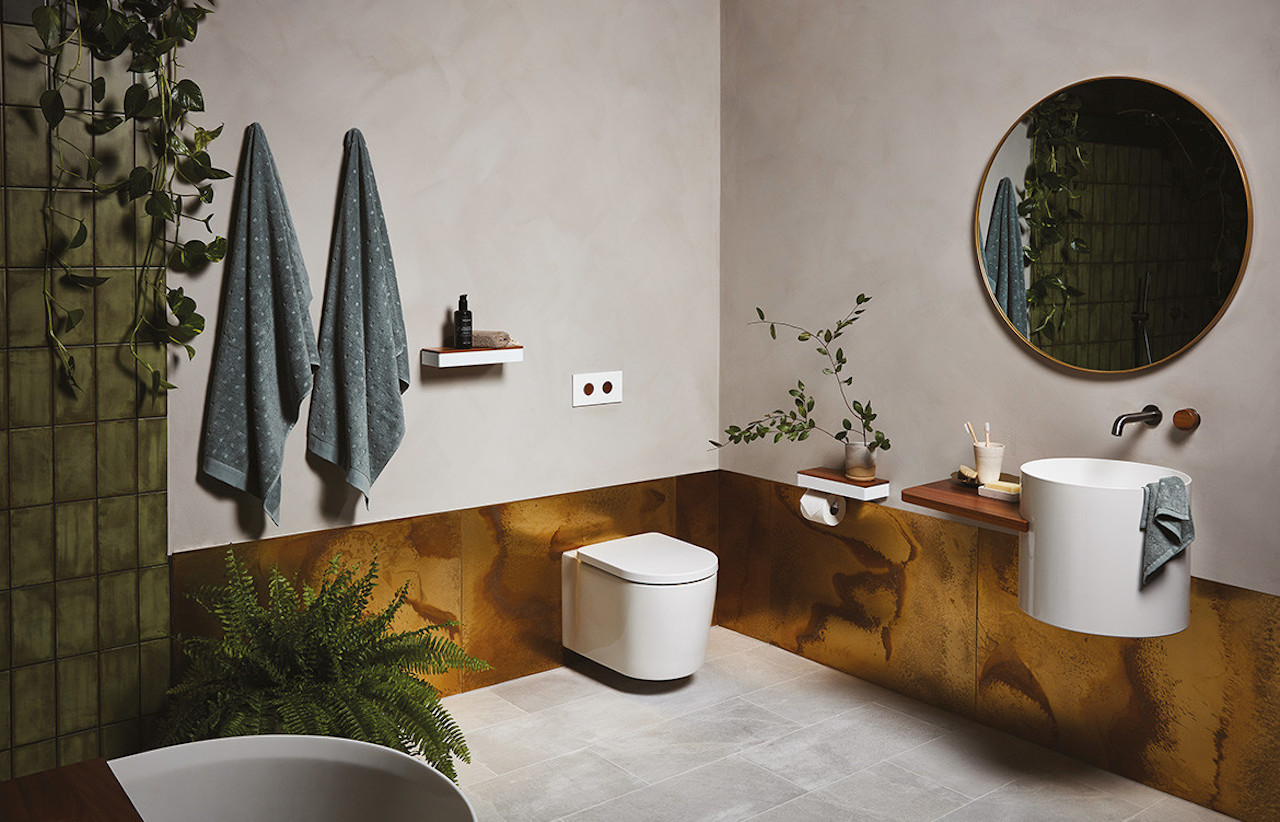
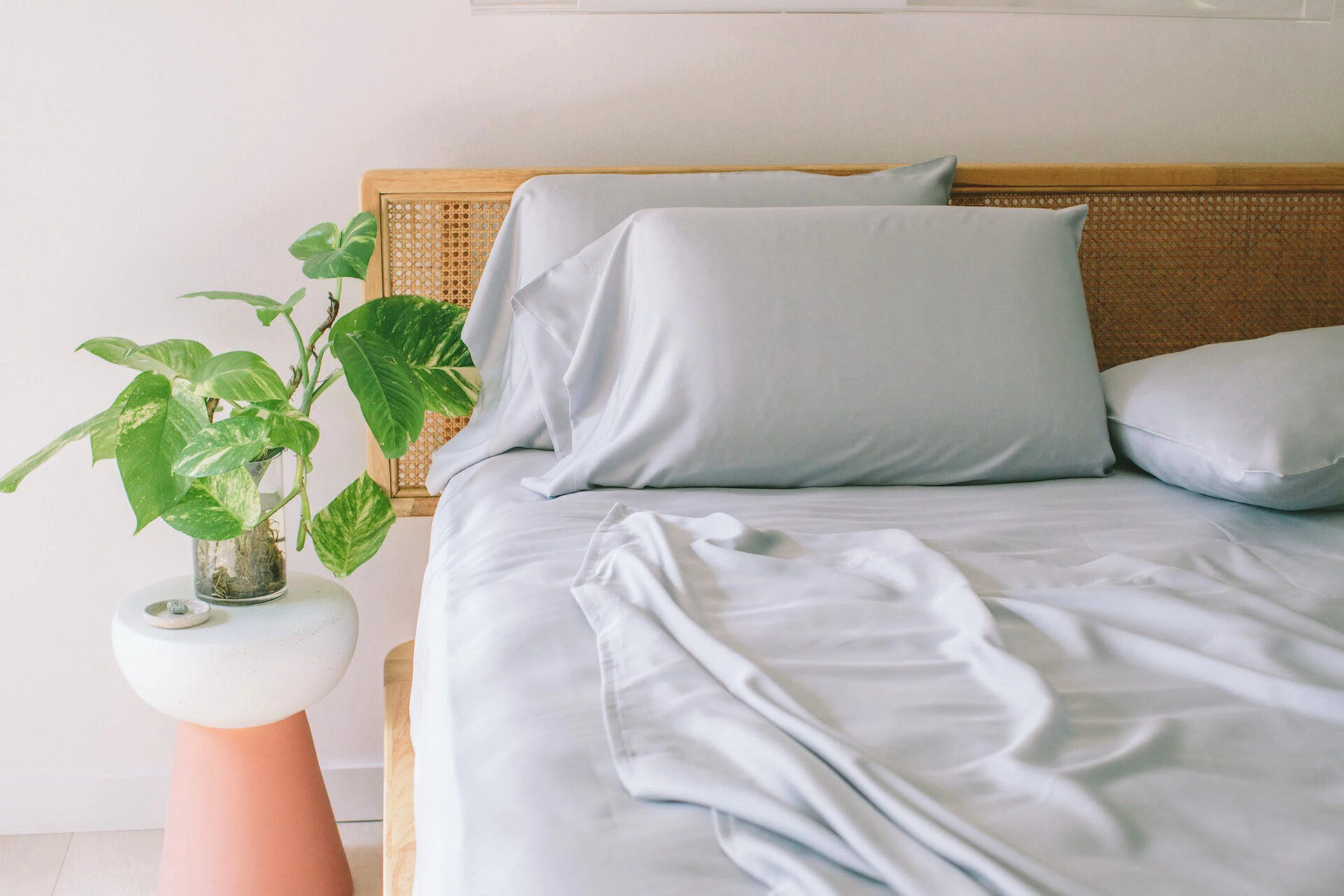
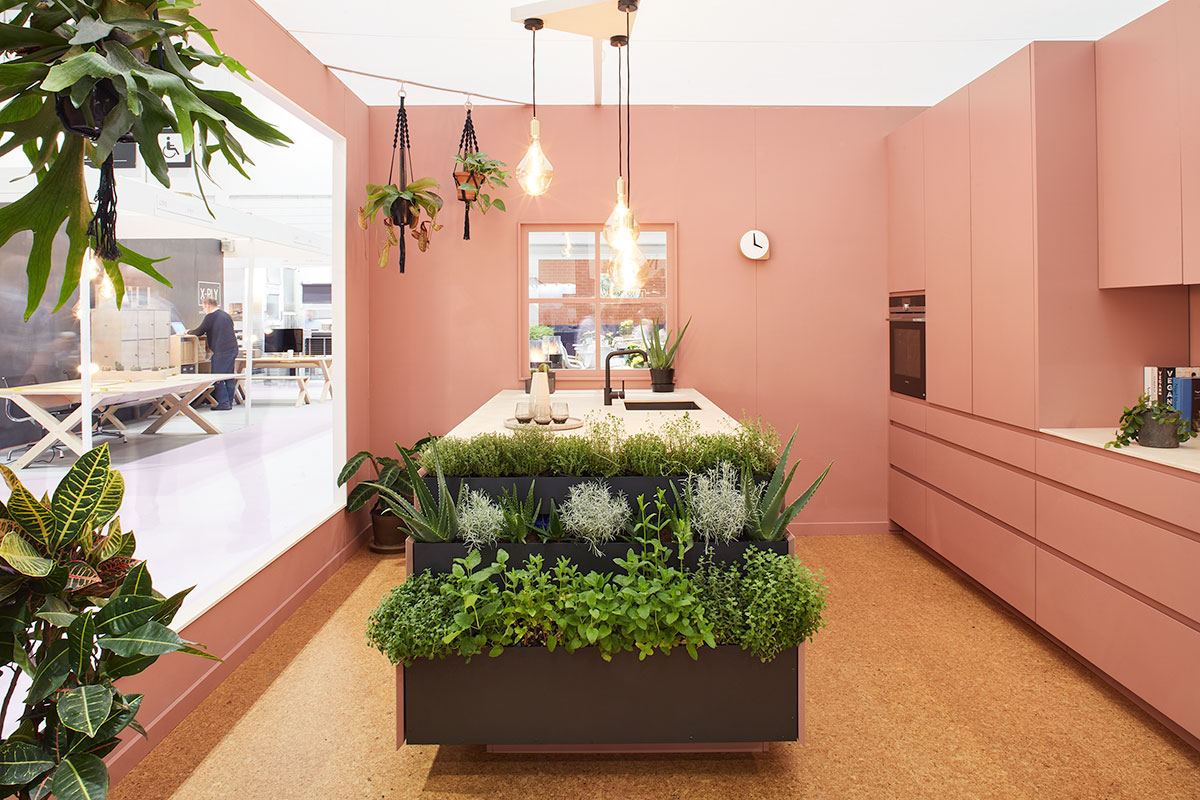



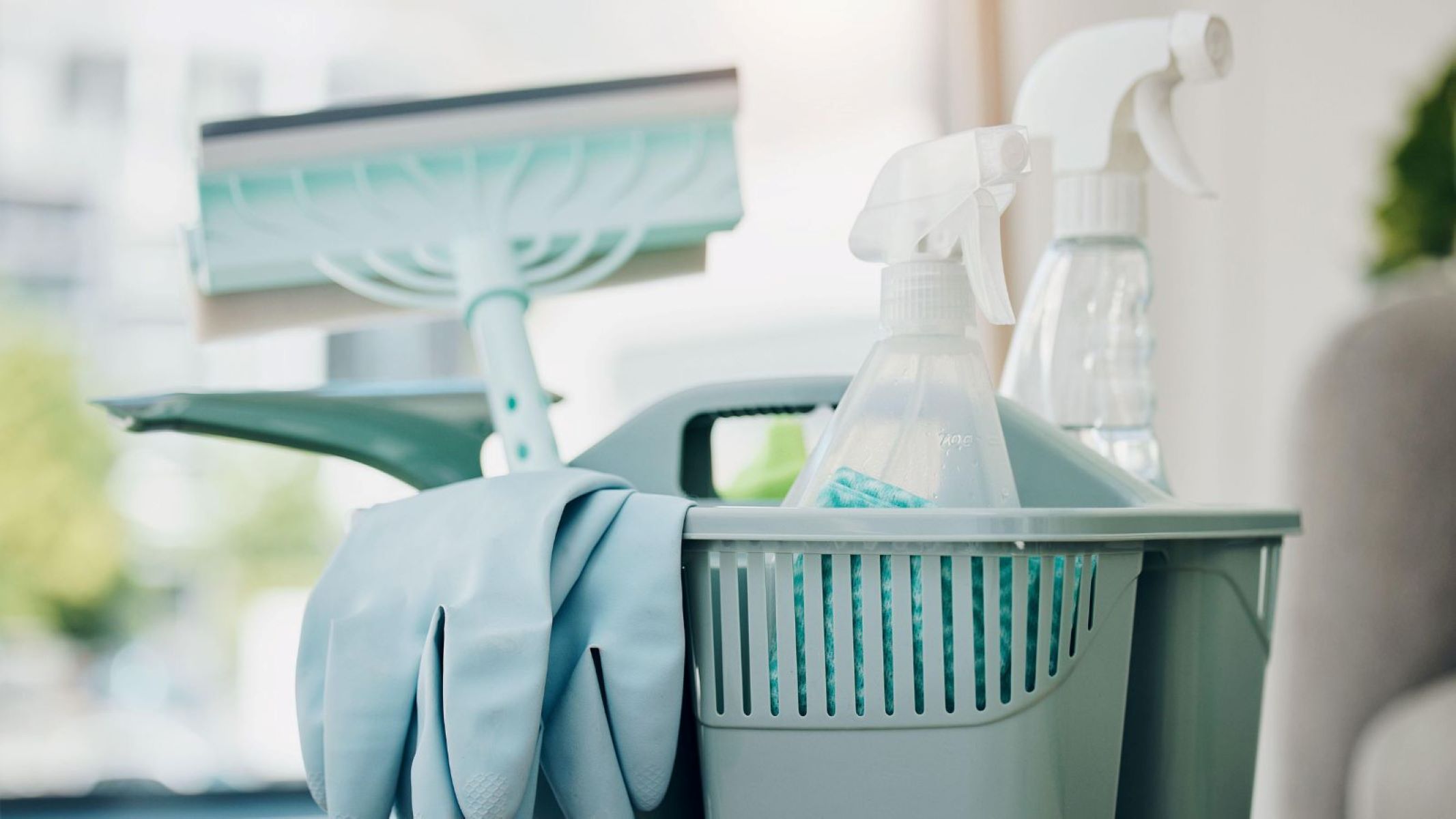
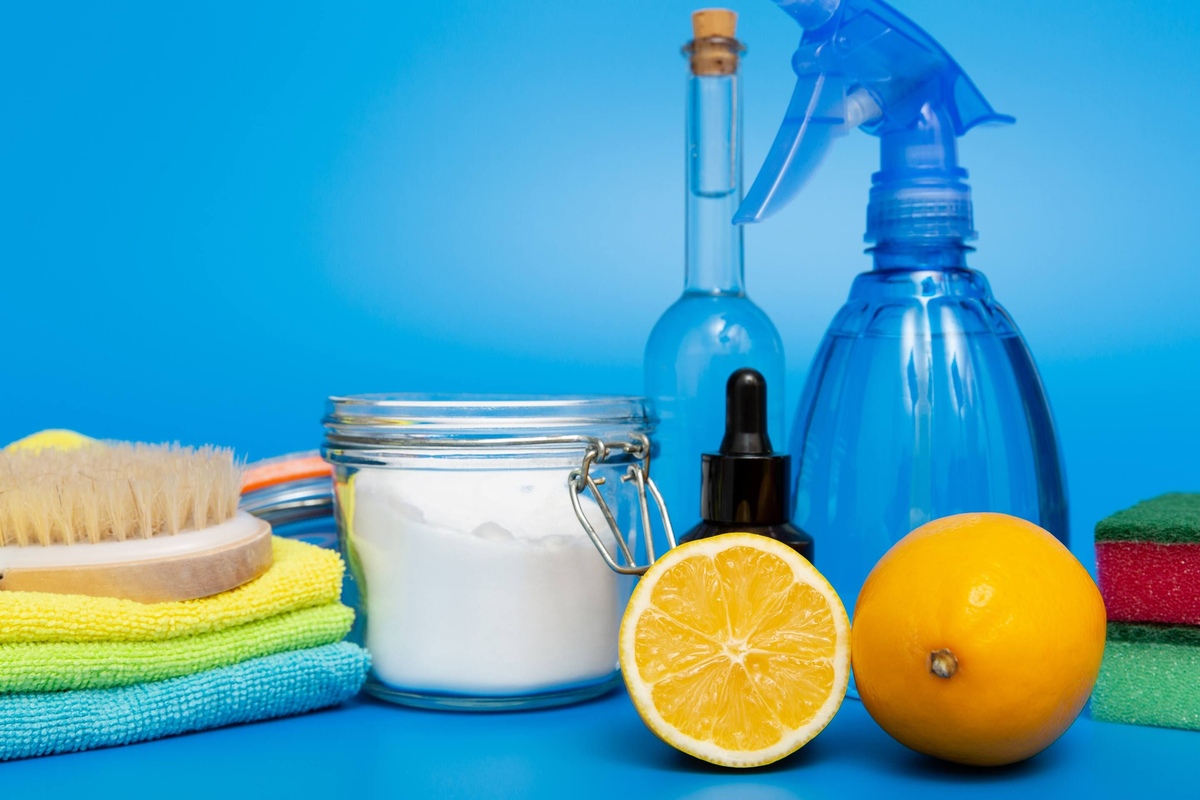



0 thoughts on “21 Eco-Friendly Ideas For Cleaning With Lemons In Your Home”